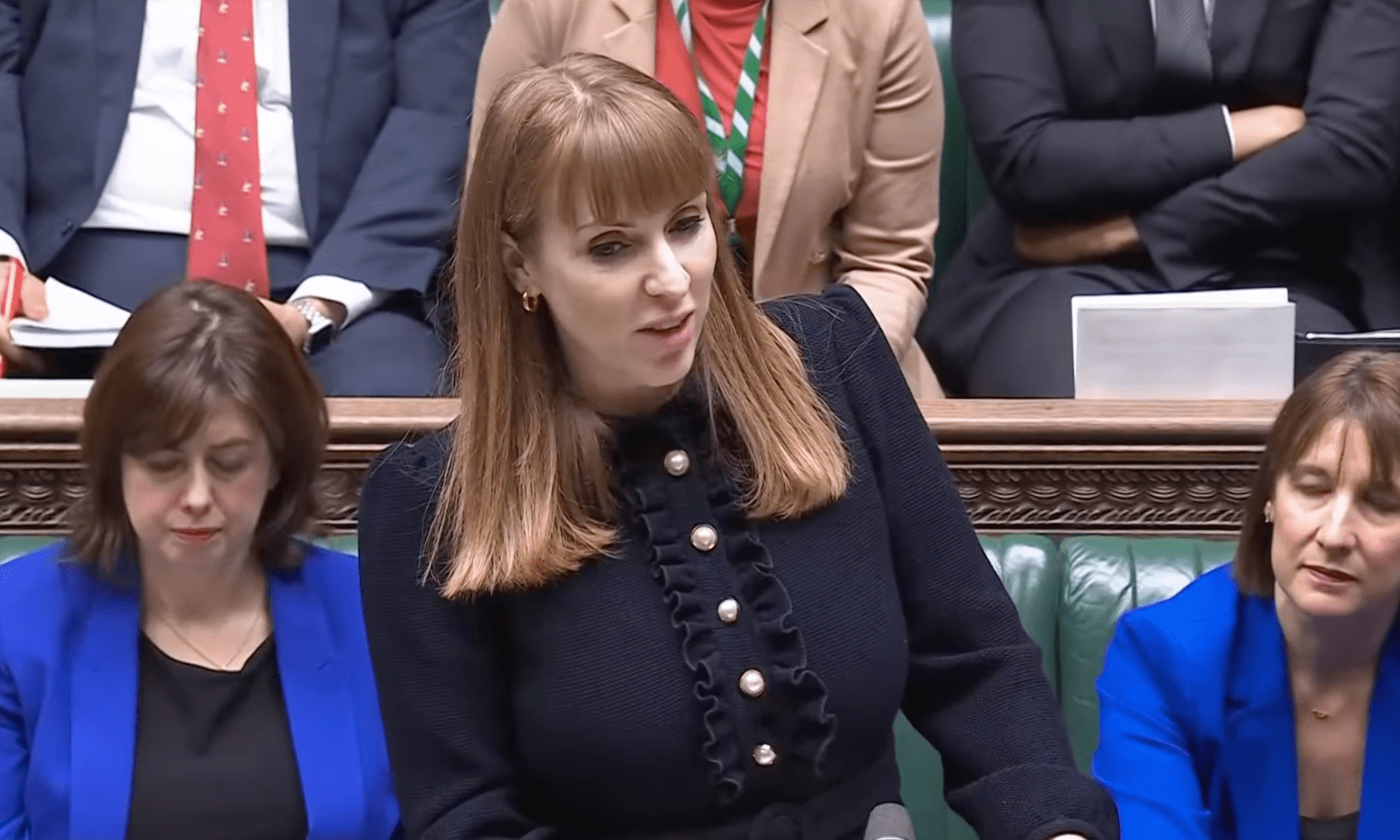Angela Rayner was so keen to get out of the traps with her criticism of the last Conservative government at today’s deputy prime minister’s questions that she almost forgot to welcome her new sparring partner. Alex Burghart is not yet a household name: in fact, he isn’t even Rayner’s direct counterpart, as Kemi Badenoch hasn’t yet named a deputy. He had a reasonable session, and even made a stab at doing something no-one else has yet managed, which is to define ‘Starmerism’. Rayner enjoyed herself, as ever, while Rachel Reeves, sitting next to her on the government benches, had the most uncomfortable session.
Perhaps Burghart’s attack might have been more potent if he had focused it on Reevesism
The Conservative shadow cabinet office minister asked a short question first, which was simply: ‘What is the government doing to bring down inflation?’ Rayner was ready – too ready – and went straight off to say ‘I think it’s astonishing that – first of all, can I welcome the right honourable gentleman to his place? And many people might not know, Mr Speaker, but the Hon. Member was the minister for growth when, under Liz Truss, inflation was 11.1 per cent and growth flatlined so we are doing much better than he did!’
Burghart then argued that the government ‘isn’t doing anything to bring down inflation’ and was in fact ‘stoking’ it. He listed ‘pay rises for the unions’, the Budget, which ‘the OBR said would increase inflation’, and ‘city economists – real economists, Mr Speaker, saying that next year inflation would hit 3 per cent’, asking, ‘Does the Right Hon. Lady agree that this government’s decisions mean higher inflation for working people?’
Rayner continued the tradition of this Labour government making PMQs about the record of the last administration, replying simply to Burghart’s question with her own query. ‘I’ll ask the honourable gentleman, 11.1 per cent or 3 per cent?’
Government frontbenchers aren’t supposed to ask questions. They are there to answer them, but the Conservatives cannot resist taking this bait whenever it is offered, and trying to defend their own record. Burghart responded that ‘it was Ukraine and Covid that drove up inflation’. He added: ‘This government is doing it to the British people: high tax, high inflation, low growth, low reform. There’s a word for that, Mr Speaker. It’s Starmerism.’
The pair then moved onto arguing about farming. Rayner insisted Labour was ‘absolutely committed to our British farmers’, while Burghart joked that perhaps she thought all the protesting farmers had come to London yesterday ‘to thank the government’. The Deputy Prime Minister continued to insist that ‘the vast majority of estate owners will be totally unaffected’. Her payoff was that it was ‘same old Tory party straight back to putting everything on their credit card, spending their reserves three times over’.
Rayner had a harder time answering questions from other MPs, including Lib Dem Daisy Cooper, about the impact of the national insurance rise on the social care sector. Liz Saville-Roberts also quoted one care home provider in her constituency who said the costs posed a ‘threat worse than Covid to their business’ and asked her to ‘personally intervene’ to make care providers exempt from the rise. Rayner stuck to the government line, but the impact of those higher costs will become obvious very quickly and be much harder to debate than the inheritance tax changes for farmers. Reeves looked serious as these questions about social care were being asked, and was poker-faced whenever there was a reference to her CV. Perhaps Burghart’s attack might have been more potent if he had focused it on Reevesism, given that’s what’s aerating most in Westminster at the moment, rather than whatever the Prime Minister himself believes.









Comments